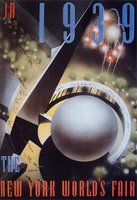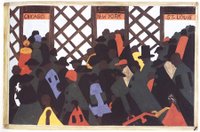As we have seen, the Great Depression has not only been a national slump in our country's history, but it has also been a pivotal point in many people's lives. Recall that many abandoned their families (ranging in age from child to adult) were gone for a long time finding work and some even committed suicide. Credit and buying on margin were two factors that fueled this downfall from a climax. But we can only read so much about this difficult 1930s "bear market."

If you lived as a mother or father of a family during this time, what would you do with your wealth when finding that the stock market was a bull market, and there is money to be had, with hopes to increase your state of living?
Also, once the stock market crashed, what would you do in an effort to keep both your family AND yourself going?
Why would you make these decisions? Reflect on how these decisions would impact your life.
Seth
Editor's note: Yes, the little boy in the picture above is standing there w/o his pants. Try not to freak, and please deal with this w/ a bit of maturity. I put this picture in here to show you the utter poverty some families had to undergo through the Great Depression (please notice the capital letters). Things we take for granted like pants for little kids might have been something in need for this family; either that or like other little kids his age, he liked to run around naked. Who knows?















